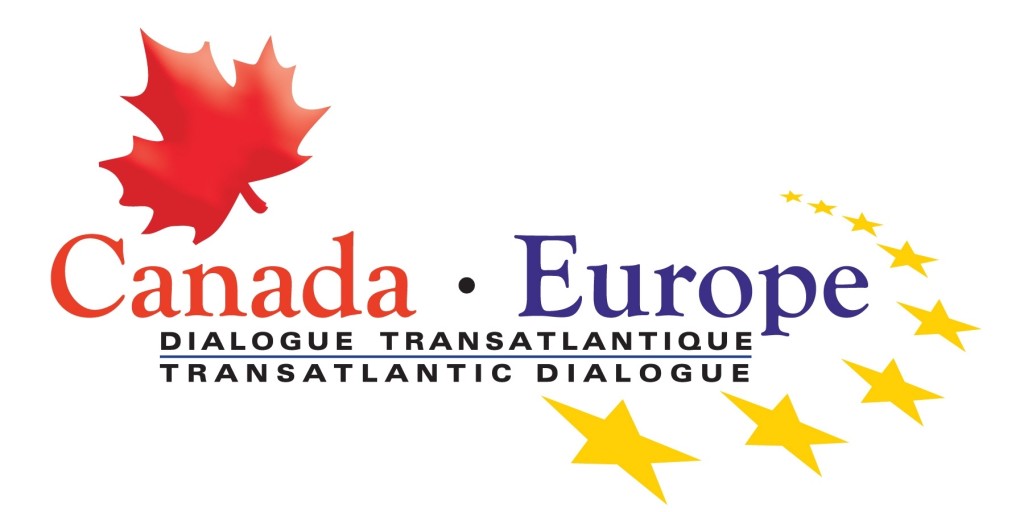Leaked Document: The EU-Canada Comprehensive Economic and Trade Agreement (CETA) is a “Corporate Power Grab”
Leaked document shows Cameron sidelining UK parliament on Controversial EU Trade deal with Canada

A set of notes that were allegedly made during the EU Foreign Affairs/Trade-Council on 13 May in Brussels, appears to show the UK aggressively pushing for a controversial trade between the EU and Canada to be implemented before the UK parliament would have a chance to vote on the issue.
The Comprehensive Economic and Trade Agreement (CETA) is a free trade deal between Canada and the EU that shares most of the same characteristics as TTIP – the equivalent deal between the EU and the USA. Campaigners argue that the deal, which has already been agreed on but yet to be ratified, would amount to an enormous corporate power grab, undermine laws to protect labour rights, consumer standards and the environment, as well as leave countries in the EU vulnerable to law suits from companies that are registered in Canada.
Current negotiations are building up to a ministerial meeting in late June that will determine the implementation process of CETA. The ‘minutes’ show that while most countries in the EU are proposing for CETA to require national parliamentary approval before it passes into law, the UK along with 6 other Member States, “called for the earliest possible entry into force or application of the Agreement (Finland, Spain, Estonia, Sweden, the UK, Portugal, Lithuania and Cyprys).”
Nick Dearden, the director of Global Justice Now which has been campaigning against CETA and other similar free-trade deals said:
“Toxic trade deals like CETA are inherently undemocratic. But Cameron seems perfectly happy to go beyond what the EU requires – he seems to be interested in handing over sovereignty for the sake of it. Again, Britain plays the role of making the EU less, rather than more, democratic.
These minutes appear to show that Britain came together with a small group of mostly very small countries to try to deny the right of national parliaments to stop a major international treaty coming into force. Any discussion in Westminster will simply be a rubber stamp. This leaves open the possibility of Britain being sued by Canadian big business in secret courts before parliament has even had the ability to scrutinise the deal.”
Leaked minutes
CETA in the Foreign Affairs/Trade-Council on May 13th, 2016.
I. Summary:
COM announced that the College of Commissioners would adopt a proposal on CETA in mid-June and then transmit it to the MS. In the debate broad support for the negotiation result in CETA was shown. Several MS called for the earliest possible entry into force or application of the Agreement (FIN, ESP, EST, SWE, GBR, PRT, LTU and CYP). A large number of MS advocated CETA as a mixed agreement (GER, AUT, HUN, LUX, GBR, ITA, GRC, IRL, ROU, CZE, SVN, PRT, POL, LTU, SVK, MLT, CYP, HRV). Legal Service (LS) of the Council recalled that the mandate provides for a mixed agreement. ITA, supported by GER and FRA, brought up the idea of a special session of the Council in the event of a difference of views between COM and the COUNCIL on the legal nature of the agreement.
GER and other MS stressed that a provisional application could only be considered in areas that are under EU-only competence and that this could only take place after approval by the EP. Disagreement appeared over the question whether the provisional application of the agreement should depend on approval by national parliaments. While GER and other MS agree with this idea, ITA raised concerns.
II. Details
Commissioner Malmström (COM) said at the outset that we are dealing with CETA as a very good agreement, which only has advantages for businesses and consumers. With the government of CAN very positive results have been achieved, particularly in area of elimination of tariffs, the opening of public procurement and the protection of investments. In mid-June COM would reach a decision and then sent it to Council and European Parliament. A visit of the Prime Minister of CAN in late October could provide an opportunity for signature. A vote in parliament could take place later this year or early next year. With regard to the discussions around CETA in some MS COM pointed out that a failure of CETA would have an impact on other EU negotiations, since the EU’s credibility would suffer vis a vis its negotiation partners. There was a shared responsibility for ensuring that the agreement can be ratified.
–Discussion by MS:
First AUT took the floor and pointed out that in the public debate in AUT would there CETA would be mixed with TTIP. There was a suspicion that one has to overcome. Therefore, a discussion in the national parliaments would be necessary. With regard to the concerns existing in the AUT federal states (Länder) AUT had the following statement recorded:
“The Austrian federal states have in their meeting of May 11 adopted the decision that the federal government should work to ensure “that the Council does not decide a provisional application of CETA”. The existing high quality standards (for example for product safety, data privacy, consumer, health, environmental and animal protection) must be maintained. Free trade agreement must be concluded as mixed agreements “.
GER pointed out that we CETA is a good agreement, especially with regard to the elimination of customs duties, the simplification of licensing procedures and with regard to labor, environmental and health standards. The access to public procurement of Canadian provinces opens up great opportunities for European companies. With regard to the way forward it would be important, to first clarify that CETA is a mixed agreement. This would also be important for the discussion on TTIP.
If the impression was created that the national parliaments cannot co-decide on these matters, there would be the danger of a dramatic loss of acceptance for trade policy. Therefore, the Council should give a strong signal, that also the national parliaments will have a say. Regarding the provisional application it must be clear that this can only take place after approval by the European Parliament (supported by CZE and SVN). Those parts that are not in exclusive EU competence should only be applied after approved by the national parliaments. Also FRA welcomed the outcome of the negotiations and emphasized – with reference to the joint letter with GER to Commissioner Malmström -, that we are dealing with a mixed agreement.
Referring to the referendum in the NLD (on the DCFTA with UKR) ITA argued that the provisional application should not depend on the ratification by national parliaments. First there would be a need for a clear legal framework clarifying the consequences of a potential refusal to ratify by a national parliament. CZE and SVN replied, that national parliaments should not be put into a situation in which they can only agree to something that is already applied anyway.
SVN stated that it could not support proposal for an “Investment Court system (ICS)” as included in CETA, while POL announced the need to re-examine the proposal. GBR however stated that it was withdrawing its reservations against this system in view of the outweighing strengths of the agreement. GRC repeated its past criticism, already expressed on several occasions, of the inadequate protection of the geographical indicatioin for feta.
ROU and BGR again reported their problems with CAN in terms of issuing visas for nationals of both countries. If not resolved, this could have an impact on the willingness to support CETA. HRV showed understanding for this position.
–Reply by COM:
In her reply Commissioner Malmström stressed that according to COM’s view investment would fall under the EU’s competence and she announced an upcoming expert opinion/study, according to which a lot or perhaps even all of CETA’s contents falls within EU competence. As this was the first agreement after the coming into force of the Lisbon Treaty one would have to carefully assess which areas fall under whose competence. She welcomed the proposal by ITA to let the Legal Services review this issue. It would have to be carefully examined, about what the national parliaments would have to take a vote, so that not one national parliament could take all the other parliaments hostage. She recalled that the ratification of the FTA with KOR – before the entry into force of the Lisbon Treaty – took four years. COM would be aware of the visa problems of ROU and BGR and has addressed these repeatedly towards CAN.
–Statement by the Legal Service of the Council:
The Council’s Legal Service disagreed with the opinion of the COM that the EU is fully responsible for investment according to the Lisbon Treaty. He also recalled that the mandate given by the Council provides for the negotiation of a mixed agreement. That COM now wants to assess the nature of the agreement solely based on its content has to be seen critically.
–Second exchange of views between COM and MS:
At the request of LUX COM clarified the way forward. Accordingly, she would take the occasion of the decision of the College of Commissioners on CETA in mid-June to express its view on whether CETA is a mixed agreement or not. Subsequently the Council would have to vote on the decision. In the case of a joint agreement unanimity is required, in the presence of an “Eu-only ‘agreement a qualified majority is needed. In any case, the EP would have to agree before the entry into force.
ITA contradicted the Legal Service of the Council. If a national Parliament rejected the agreement, it could also not come into force in all other MS. Therefore, there is no legal clarity on how to deal with mixed agreements. The MS would have to understand what this actually means and possibly draw lessons from it. Under certain circumstances a special session of the Council would be necessary to clarify the legal situation.
GER stated that there were two dimensions to this issue: a legal and a political one. With regard to the legal dimension GER agrees with the LS of the Council that the conditions under which negotiations took place were clear. Regarding the political assessment it is to be noted that no MS spoke out against the nature of CETA as a mixed agreement. If one would get into a situation in which the view of the COM remains that there is no mixed agreement while in the MS perspective it is mixed, there would be the impression in some MS including GER that something is to be pushed through without national parliaments having a say. This would have major impacts on trade policy. As proposed by ITA, the Council should come together on this issue again if COM and MS end up having different views on the legal nature of CETA.
FRA supported GER and stressed the importance of the issue and of the shared responsibility. If COM would end up with a different assessment of the legal nature of CETA the representatives of the MS-governments must meet again.
Finally the Presidency summarized, that CETA was widely supported. It should be welcomed that COM will present its proposal in mid-June. It was expected that COM would take into account the statements by MS on the nature of CETA as a mixed agreements. After the proposal of the COM is out, the Presidency will comment on the way forward.


